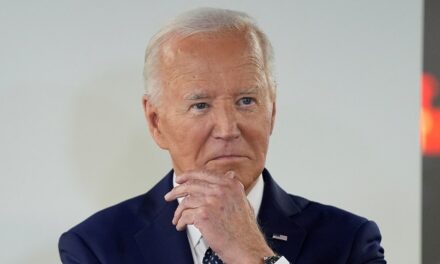The largest teachers union in the United States has expressed strong opposition to what it terms “unlawful” budget reductions to the Department of Education, a development that has arisen in the wake of a recent Supreme Court ruling. This heightened tension between education advocates and policymakers shines a spotlight on a significant and contentious issue affecting educators and students alike.
In the aftermath of the Supreme Court’s decision, which has drawn national attention, the National Education Association (NEA) has been quick to respond to the implications for funding within the education sector. The union argues that these cuts not only undermine the educational system but also threaten the very foundation of public education.
The Supreme Court ruling, viewed as a critical turning point, has led to questions regarding its potential impact on education financing. The NEA’s president has articulated concerns that the decision may pave the way for increased budgetary pressures, particularly in states where education funding is already stretched thin. The union highlights that such decisions could exacerbate existing inequities and hamper efforts to provide a quality education to all students.
At the heart of the union’s argument is the belief that education should be prioritized over budgetary constraints. They assert that every student deserves access to quality resources, qualified teachers, and safe learning environments. However, as fiscal challenges mount, many educators fear that these essential provisions could fall by the wayside.
The NEA, which represents over three million educators across the country, has also challenged the legality of the budget cuts. They contend that these reductions violate federal laws aimed at ensuring equitable access to educational opportunities. According to the union, the cuts disproportionately affect impoverished districts, where resources are already limited and reliance on federal funding is crucial.
Furthermore, the NEA’s response comes amidst a broader national dialogue regarding the significance of public education. Advocates emphasize the vital role that well-funded schools play in fostering informed and engaged citizens. They argue that any attempts to diminish funding for education run counter to the values of democracy and equality.
Many educators echo the NEA’s sentiments, expressing deep concern over the potential ramifications these cuts may have on their classrooms. Reports from various states highlight fears that reduced funding could lead to larger class sizes, insufficient supplies, and a decreased ability to offer crucial support services to students in need.
In response, grassroots movements have begun to emerge in direct opposition to these cuts. Local chapters of the NEA are rallying community members to engage in advocacy efforts aimed at protecting education funding. These grassroots initiatives are designed to raise public awareness of the issue and mobilize support for preserving the integrity of education finance.
The NEA is not alone in its fight against the cuts. Numerous civil rights organizations and education advocacy groups have joined forces, emphasizing that the cuts could lead to wider societal ramifications, particularly for marginalized communities that rely heavily on public education as a pathway to success. The coalition argues that any reduction in funding would have adverse implications on the mission to close the achievement gap.
Looking beyond immediate concerns, the NEA also points to the long-term consequences that the cuts could have on the education workforce. Teachers, who play a central role in molding the future of society, may become disillusioned and leave the profession if they continue to feel unsupported. This situation could lead to a chronic shortage of qualified teachers, further exacerbating the challenges that schools face in providing a high-quality education.
The union believes that it is critical to address these cuts at both the state and federal levels. To that end, the NEA is urging Congress to take action to restore previous funding levels and ensure that education continues to receive the attention and resources it deserves. Their call to action emphasizes the need for a robust investment in education as a fundamental building block for a prosperous society.
The education funding debate is a reflection of larger national conversations about the allocation of taxpayer dollars and government priorities. As the NEA pushes back against the cuts, the organization is framing the discussion in terms of equity and access, aiming to evoke a sense of urgency among lawmakers and the public.
Moreover, the NEA’s efforts are a reminder of the vital role that teachers play in their communities, not just as educators but as advocates for social justice and equality. By standing up against the proposed cuts, the NEA is reinforcing the idea that education is not merely a line item in a budget but a cornerstone of democracy and societal progress.
As swing states and battleground districts prepare for future elections, the issue of education funding remains at the forefront of political debate. Candidates on both sides of the aisle may find it increasingly essential to address constituents’ concerns regarding educational equity and resources. The NEA’s mobilization efforts could influence voter sentiment and potentially shape policy outcomes in the 2024 elections.
The path forward for the NEA and its supporters is fraught with challenges, but their resolve illustrates a deep commitment to advocating for educators and students alike. By denouncing the cuts as unlawful and pushing for an equitable funding framework, the teachers union seeks not only to protect its members but also to secure a brighter future for students across the nation.
In conclusion, the NEA’s critique of the recent budget reductions to the Department of Education signifies a broader struggle over the priorities our nation places on education. As legal battles unfold and advocacy efforts intensify, one thing becomes clear: the fight for quality education is an ongoing one that will require sustained engagement from educators, parents, students, and community members alike. Together, they must advocate for the funding and support that ensure every child has the opportunity to succeed in an increasingly complex world.































